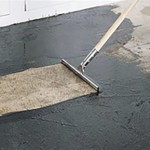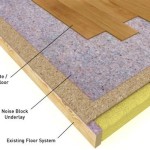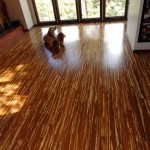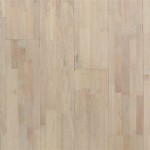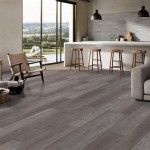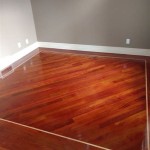Engineered Hardwood Flooring: A Guide To Choosing The Right Floor
Engineered hardwood flooring is a popular choice for homeowners who want the look and feel of hardwood without the high cost and maintenance. Engineered hardwood is made from a thin layer of real hardwood that is bonded to a core of plywood or other stable material. This construction makes engineered hardwood more durable and less likely to warp or buckle than solid hardwood. Engineered hardwood is also available in a wider range of styles and finishes than solid hardwood, making it a versatile choice for any home.
Choosing The Right Engineered Hardwood Floor
When choosing an engineered hardwood floor, there are a few things to keep in mind:
- Species: Engineered hardwood is available in a wide range of species, including oak, maple, cherry, and walnut. Each species has its own unique look and feel, so it's important to choose a species that complements your home's decor.
- Grade: Engineered hardwood is graded according to its appearance. The higher the grade, the fewer knots and other imperfections in the wood. Choose a grade that fits your budget and your desired look.
- Finish: Engineered hardwood is available in a variety of finishes, including satin, semi-gloss, and high-gloss. The finish you choose will affect the appearance and durability of the floor.
- Installation: Engineered hardwood can be installed over most existing floors, including concrete, tile, and vinyl. However, it's important to hire a qualified installer to ensure that the floor is installed properly.
Pros and Cons of Engineered Hardwood Flooring
Pros:
- Durable and long-lasting
- Less likely to warp or buckle than solid hardwood
- Available in a wide range of styles and finishes
- Can be installed over most existing floors
Cons:
- More expensive than laminate or vinyl flooring
- May require more maintenance than solid hardwood
- Not as easy to refinish as solid hardwood
Alternatives to Engineered Hardwood Flooring
If you're looking for a more affordable option than engineered hardwood, there are a few alternatives to consider:
- Laminate flooring: Laminate flooring is a synthetic product that is made to look like wood. It's less expensive than engineered hardwood and is very durable.
- Vinyl flooring: Vinyl flooring is another synthetic product that is made to look like wood. It's also less expensive than engineered hardwood and is very easy to maintain.
- Solid hardwood flooring: Solid hardwood flooring is made from a single piece of wood. It's the most expensive option, but it's also the most durable and can be refinished multiple times.
Conclusion
Engineered hardwood flooring is a great choice for homeowners who want the look and feel of hardwood without the high cost and maintenance. When choosing an engineered hardwood floor, it's important to keep in mind the species, grade, finish, and installation. If you're looking for a more affordable option, there are a few alternatives to consider, such as laminate flooring, vinyl flooring, or solid hardwood flooring.

A Guide To Choosing The Right Hardwood Flooring Abacus

Types Of Hardwood Flooring Forbes Home

Flooring 101 Choosing The Right Width For Your Wood Floor Carlisle Wide Plank Floors

What You Need To Know About Engineered Hardwood Flooring Renaissance Floors

How To Choose The Right Hardwood Floor For Your Home

Engineered Wood Vs Solid Hardwood

Lvp Vs Engineered Hardwood Flooring Comparison Guide

Choosing The Right Hardwood Floor For Your New Home Houses Nashville Real Estate

Master The Art Of Matching Wood Flooring Floor Color Guide Reallyfloors America S Est Hardwood

4 Things To Know Before An Engineered Hardwood Floor Carlisle Wide Plank Floors
See Also
